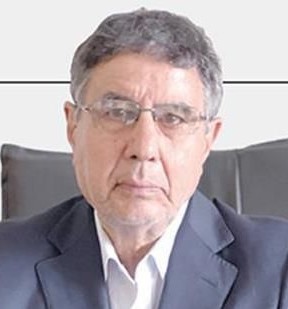
By Ali Salehabadi
Managing director of Setare Sobh daily/ Iran
TEHRAN: The words paradigm and paradigm shift are important terms used in many fields, including philosophy. But how and when did these terms become part of political, social, and economic discussions?
The person who introduced these key concepts was Thomas Kuhn (1922–1996), a physicist from Harvard University. His most famous book is The Structure of Scientific Revolutions.
A paradigm is a long-lasting framework of thinking, culture, behavior, and governance that shapes the beliefs and actions of individuals, societies, and governments. If this system works and matches its basic assumptions, it remains in place. But if it fails to produce good results or no longer fits reality, it changes. This change is called a paradigm shift.
A paradigm shift happens when previous beliefs, policies, and actions prove to be wrong or harmful. It leads to a new way of thinking and acting.
The 1979 Iranian Revolution was an important paradigm that most Iranians believed in. However, 19 years later, in the 1997 presidential election (Second of Khordad), the majority voted for reform instead of the revolutionary ideals. This was a clear paradigm shift—people voted for change. Of course, a minority still remained loyal to the old revolutionary discourse.
Hostility toward the U.S., anti-Israel and anti-Western attitudes, and slogans like “Destroy Israel” became a fixed paradigm for some, without asking the public. But after Hamas attacked Israel on October 7, 2023, giving Israel an excuse to destroy Gaza, weaken Hezbollah, and destabilize Syria, this paradigm not only failed, but also caused damage.
Iran then began a new approach by starting five rounds of negotiations with the U.S. This marked a paradigm shift.
The JCPOA nuclear deal in 2015 during Rouhani’s first term was also a significant event. Western investors, including Americans, were expected to come to Iran. But their arrival was blocked. Later, when President Trump took office, this policy changed. Iran’s foreign minister even invited American investors. This shows the previous paradigm was not successful and had to shift.
Tensions between Iran and Saudi Arabia lasted for decades. When it became clear that this conflict was harmful, Iran shifted from confrontation to negotiation and reconciliation. This was another paradigm shift.
Just last week, 180 Iranian economists issued a statement urging the government to change its governance paradigm and adopt a new way of managing the country’s challenges.
Iran today is under coordinated pressure from the U.S., Europe, Israel, and some Arab countries. If the governance paradigm doesn’t change and slogans like “No Compromise, No Surrender, Fight America” continue, and even attempts to assassinate President Trump are pursued, it’s likely that there will be another deadly attack by Israel or the U.S.
The geopolitical landscape of the region and the world has changed. The 16 million people who voted for Mr. Pezeshkian want better relations with the West, especially the U.S. to solve economic, social, and environmental problems that are making life difficult for everyone.
The President of Iran should not give in to a small minority. Compromise does not mean surrender—it means reducing pressure and threats that harm the nation and the people.
As Mr. Pezeshkian said during his campaign must be the voice of the people, not the voice of a minority. Israel now has the advanced weapons and surveillance systems, and its alliance with US is dangerous for Iran’s people.
If this claim is wrong, hold a national referendum.





